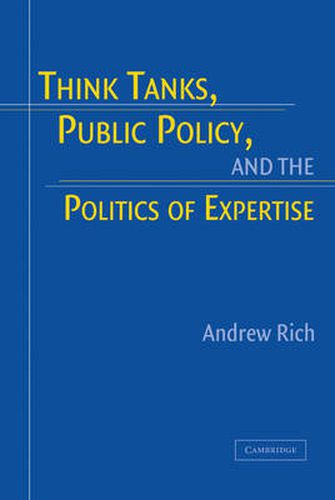Readings Newsletter
Become a Readings Member to make your shopping experience even easier.
Sign in or sign up for free!
You’re not far away from qualifying for FREE standard shipping within Australia
You’ve qualified for FREE standard shipping within Australia
The cart is loading…






While the number of think tanks active in American politics has more than quadrupled since the 1970s, their influence has not expanded proportionally. In many cases, think tanks have become more marketing than research organizations, with styles of behavior that mimic interest groups more than universities. Rather than organizations committed to objective analysis of policy problems, think tanks have become organizations that turn experts into advocates and policy information into ammunition. The book explains this paradox and elaborates on its significant implications. The analysis is based on 135 in-depth interviews with officials at think tanks and those in the policymaking and funding organizations that draw upon and support their work. The book reports on results from an original survey of congressional staff and journalists and detailed case studies of the role of experts in health care and telecommunications reform debates in the 1990s and tax reform in 2001.
$9.00 standard shipping within Australia
FREE standard shipping within Australia for orders over $100.00
Express & International shipping calculated at checkout
While the number of think tanks active in American politics has more than quadrupled since the 1970s, their influence has not expanded proportionally. In many cases, think tanks have become more marketing than research organizations, with styles of behavior that mimic interest groups more than universities. Rather than organizations committed to objective analysis of policy problems, think tanks have become organizations that turn experts into advocates and policy information into ammunition. The book explains this paradox and elaborates on its significant implications. The analysis is based on 135 in-depth interviews with officials at think tanks and those in the policymaking and funding organizations that draw upon and support their work. The book reports on results from an original survey of congressional staff and journalists and detailed case studies of the role of experts in health care and telecommunications reform debates in the 1990s and tax reform in 2001.